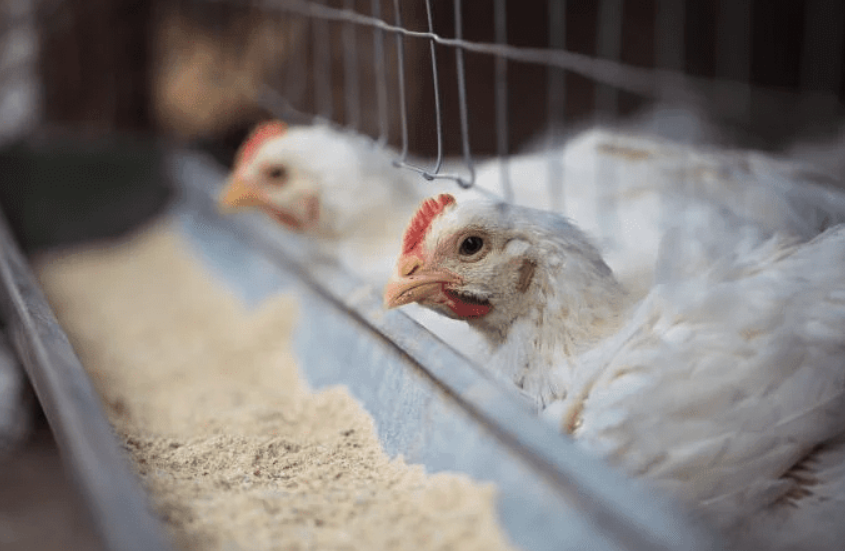For poultry farmers across Africa, the challenge is constant: how to raise healthy, productive flocks efficiently and sustainably, often in the face of disease pressure and heat stress. While antibiotics have long been a go-to for growth promotion and disease prevention, global trends and consumer concerns are driving a decisive shift. In this new era, probiotics are emerging as a powerful, natural tool to enhance gut health, improve feed efficiency, and build a more resilient flock.
More Than a Supplement: Understanding Probiotics
So, what exactly are probiotics in this context? They are live, beneficial microorganisms primarily strains of Lactobacillus, Bifidobacterium, and Bacillus that, when administered in adequate amounts, confer a health benefit on the bird.
Think of the chicken’s gut as a complex ecosystem. The goal of probiotics is to tip the balance in favour of “good” bacteria, creating a healthy gut microbiome. This leads to a cascade of benefits:
- Crowding Out Pathogens: Beneficial bacteria compete with harmful ones like Salmonella and E. coli for space and nutrients, effectively reducing the incidence of disease.
- Strengthening Gut Lining: Probiotics help maintain the integrity of the intestinal wall, acting as a vital barrier against toxins and pathogens entering the bloodstream.
- Aiding Digestion: They produce enzymes that help break down feed, leading to better nutrient absorption.
The Direct Benefits Driving Adoption on the Farm
For the African poultry producer, the theoretical benefits of probiotics translate into tangible, on-farm results:
- Enhanced Growth Performance: A healthy gut is an efficient gut. By improving nutrient absorption, probiotics directly lead to better Feed Conversion Ratios (FCR) and increased Average Daily Gain (ADG), getting birds to market weight faster on less feed.
- Reduced Mortality and Morbidity: By controlling gut pathogens, probiotics lower the rates of disease and mortality. This is crucial in regions where veterinary services can be costly or inaccessible, helping to protect a farmer’s entire investment.
- A Viable Alternative to Antibiotics: With growing global pressure to reduce antibiotic use in livestock, probiotics offer a scientifically-backed alternative for maintaining animal health and productivity without contributing to antimicrobial resistance (AMR).
- Improved Resilience: Stressors like heat, transportation, or feed changes can disrupt a bird’s gut health. Probiotics help stabilise the gut microbiome, making flocks more robust and able to withstand these challenges.
Market Outlook and Local Opportunities
The global momentum behind probiotics in poultry feed is undeniable, reflecting a major shift in animal health management. The market, which reached a value of US$5,731.9 million in 2024, is on a strong growth trajectory, with projections indicating it will surge to US$9,346.5 million by 2032, expanding at a compound annual growth rate (CAGR) of 6.4% during the forecast period of 2025-2032 (DataM Intelligence). Africa is poised to be a key region for this adoption, fueled by the urgent need for sustainable intensification of poultry production to meet the continent’s rapidly rising demand for affordable animal protein.
This robust global growth creates a significant opportunity for local African feed mills, agri-biotech startups, and distributors. The demand is rising for:
- Affordable, Quality Products: Developing cost-effective probiotic solutions tailored to local feed ingredients and common regional disease challenges.
- Farmer Education & Training: Providing clear, practical information for farmers on the tangible benefits and correct usage of probiotics to maximize their return on investment.
- Climate-Stable Formulations: Ensuring products remain viable and potent in Africa’s often hot and humid climate conditions, which can impact microbial stability.
Conclusion: A Strategic Investment for a Sustainable Flock
For the modern African poultry farmer, probiotics are shifting from an optional additive to a core component of a smart, sustainable feeding strategy. The evidence is clear: investing in gut health through probiotics pays dividends in improved bird performance, reduced disease costs, and a more resilient operation.
As the industry continues to evolve, embracing proven alternatives like probiotics is not just about keeping up with trends it’s about building a more profitable and sustainable future for poultry farming across the continent.



